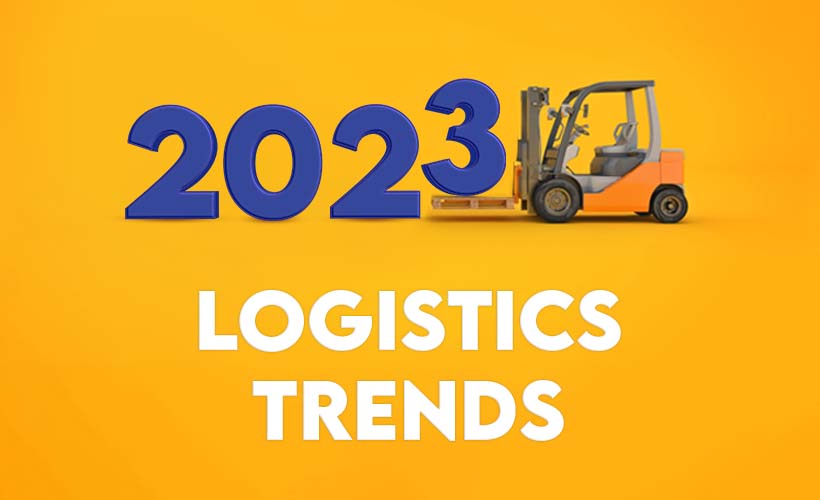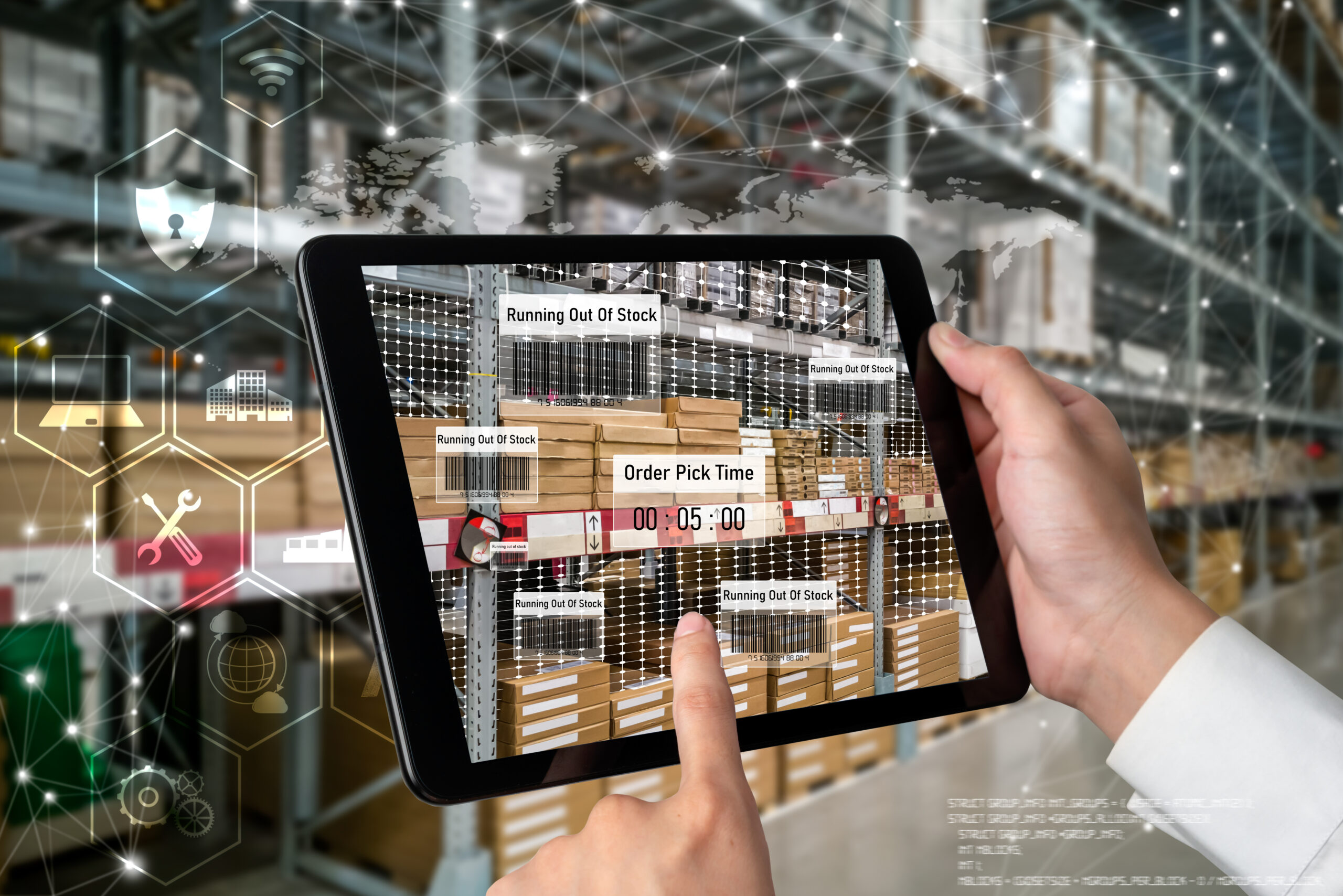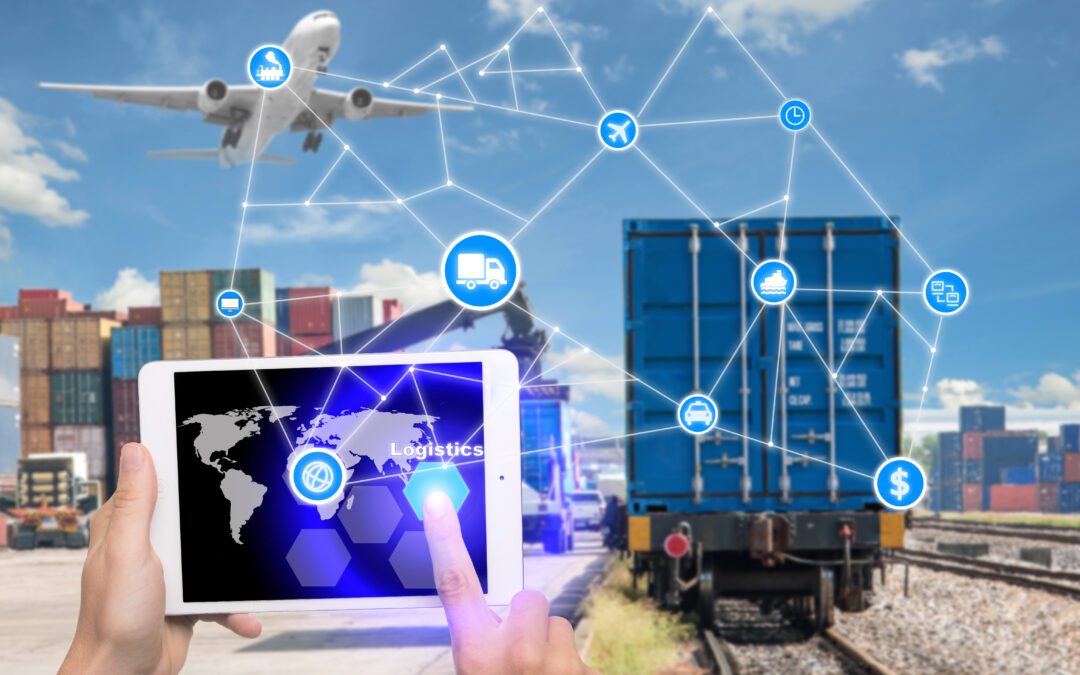The logistics industry is constantly evolving, and technology is playing a major role in that evolution.
As new technologies emerge, logistics companies have the opportunity to improve their efficiency, accuracy, and speed. However, in order to stay ahead of the curve, it’s important to be aware of the latest trends and to be willing to adopt new technologies.

Here are some of the most important technology trends that are impacting the logistics industry:
-
- Artificial intelligence (AI): AI is being used in a variety of ways in the logistics industry, from optimizing routing and scheduling to managing inventory.
- Blockchain: Blockchain is a distributed ledger technology that can be used to track shipments and payments.
- Internet of Things (IoT): IoT sensors can be used to collect data about shipments and assets, which can then be used to improve decision-making.
- Robotics: Robots are being used in warehouses and other logistics facilities to automate tasks such as picking and packing.
These are just a few of the many technology trends that are impacting the logistics industry. By staying up-to-date on these trends and by adopting new technologies, logistics companies can stay ahead of the curve and improve their competitive advantage.
As stated above, Artificial intelligence (AI) is being used in the logistics industry in a variety of ways to improve efficiency, accuracy, and visibility.
Some of the most common uses of AI in logistics:
-
- Route optimization: AI can be used to optimize delivery routes, taking into account factors such as traffic conditions, weather, and delivery deadlines. This can help to reduce delivery times and improve fuel efficiency.
- Demand forecasting: AI can be used to forecast demand for products, which can help logistics companies to plan their inventory levels and optimize their transportation network. This can help to reduce stockouts and ensure that products are available when customers need them.
- Fraud detection: AI can be used to detect fraudulent activity in the supply chain, such as counterfeit goods or unauthorized shipments. This can help to protect businesses from financial losses and ensure that customers receive genuine products.
- Warehouse management: AI can be used to automate warehouse tasks such as picking, packing, and sorting. This can help to improve efficiency and accuracy, and reduce the need for manual labor.
- Customer service: AI can be used to provide customer service chatbots that can answer customer questions and resolve issues. This can help to improve customer satisfaction and reduce the workload on customer service representatives.

Specific examples of how AI is being used in the logistics industry today:
Amazon: Amazon uses AI to power its Amazon Flex delivery service, which uses crowdsourced drivers to deliver packages. AI helps to match drivers with deliveries, optimize routes, and track packages in real time.
UPS: UPS uses AI to power its On-Demand Delivery service, which allows customers to schedule deliveries for specific times. AI helps to predict demand and optimize delivery routes, which can save customers money and time.
DHL: DHL uses AI to power its FlightForward service, which allows customers to track their shipments in real time and make changes to delivery schedules if needed. AI helps to provide customers with more visibility into their shipments and make it easier for them to manage their deliveries.
These are just a few examples of the many ways that AI is being used in the logistics industry today. As AI technology continues to develop, we can expect to see even more innovative and effective uses of AI in the future.
Tips for staying ahead of the curve in the logistics industry with technology:
-
- Monitor emerging technologies and trends. This involves staying up-to-date on the latest developments in logistics technology, such as AI, blockchain, and IoT. You can do this by reading industry publications, attending conferences, and following thought leaders on social media.
- Invest in new technologies. Once you’ve identified emerging technologies that have the potential to benefit your business, you need to invest in them. This could involve purchasing new software, hardware, or services.
- Be open to change. Logistics is a constantly evolving industry, so you need to be open to change. This means being willing to adopt new technologies and processes, even if they seem disruptive at first.
- Partner with technology providers. There are a number of technology providers that can help you stay ahead of the curve in logistics. These providers can offer you access to the latest technologies, as well as expertise and support.
- Measure and evaluate the results. It’s important to measure and evaluate the results of your technology investments. This will help you determine whether they are meeting your goals and identify areas for improvement.
Some additional benefits of using technology in the logistics industry include:
- Improved efficiency: Technology can help logistics companies to streamline their operations and improve efficiency. This can lead to reduced costs and improved customer service.
- Increased accuracy: It can help to reduce errors and improve accuracy. This can lead to fewer delays and a more reliable supply chain.
- Enhanced visibility: It can help to gain greater visibility into a company’s supply chain. This can help them to make better decisions and improve customer satisfaction.
- Improved security: Technology can help logistics companies to improve security and protect their assets. This can help them to reduce losses and comply with regulations.
Here are some additional tips that you may find helpful:
- Build a strong technology team. You need to have a team of people who are knowledgeable about logistics technology and who can help you implement and use it effectively.
- Create a technology roadmap. This will help you to plan your technology investments and ensure that they are aligned with your business goals.
- Communicate with your stakeholders. It’s important to communicate with your stakeholders about your technology plans and how they will benefit the business.
Improving your competitive advantage is key to staying ahead of the technology curve in the logistics industry.
In an industry where technology plays a crucial role in ensuring everything runs smoothly, you need a dedicated team of experts to help you manage your IT. This responsibility may be too much for your in-house IT, so outsourcing may benefit your business in the long run.
Whether you are a small logistics business or a large enterprise, hiring a Managed IT Service Provider (MSP) is a smart investment that can help you achieve your business goals and succeed in a highly competitive industry. Partnering with an expert IT service provider can easily provide you with the following technological benefits:
-
- Enhanced operational efficiency
- Reduced costs
- Improved customer experience
Need help?
At PCA Technology Solutions, we help hundreds of clients make intelligent choices about their technology. Ask us how we can assist you today.

